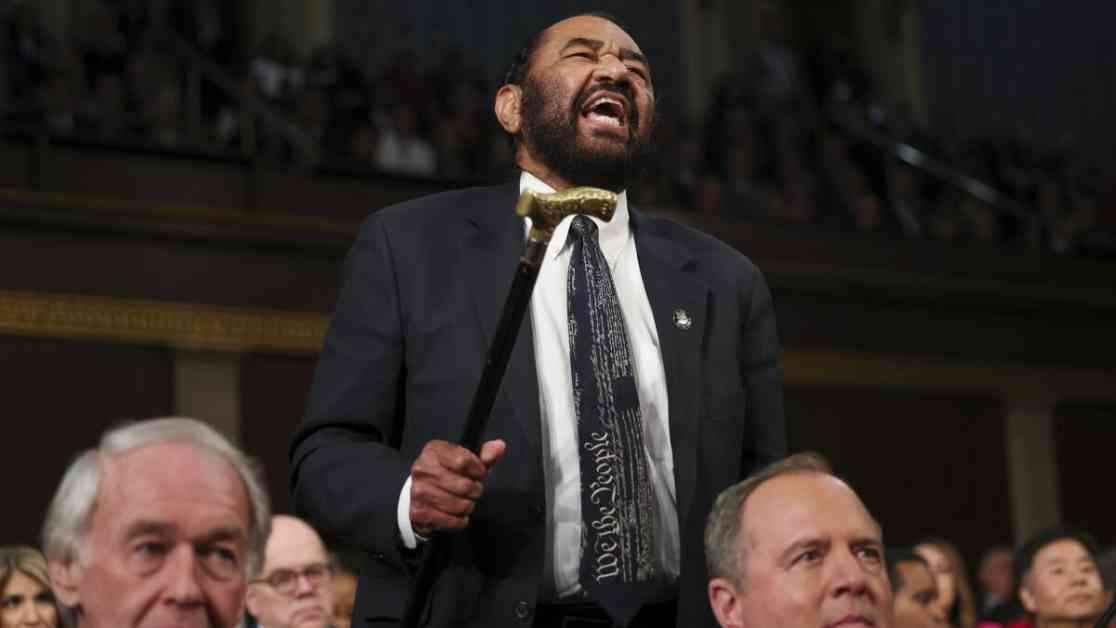The recent presidential address to Congress by President Trump has highlighted a stark divide in the nation’s political landscape, bringing to light the growing polarization and lack of decorum among lawmakers. What was once an opportunity for leaders to promote national unity and debate policy differences has now become a stage for fiery exchanges and disruptive behavior.
Unraveling Decorum: A Nation Divided
As President Trump entered the chamber for his address, tensions were already running high. A notable incident occurred when Rep. Lance Gooden (R-Texas) ripped a sign that read “This is not normal” out of the hands of Rep. Melanie Stansbury (D-N.M.), setting the tone for a contentious evening ahead. The atmosphere only intensified as Democratic lawmakers raised signs protesting various issues such as “Save Medicaid,” “Musk steals,” and “Protect veterans” while Trump spoke.
The disruptions did not stop there. When Trump referred to his election victory as an unprecedented mandate, Rep. Al Green (D-Texas) stood and shouted, “You don’t have a mandate!” before being escorted out of the chamber. The chaotic scene escalated as Republican lawmakers chanted “USA! USA!” in response, creating a cacophony of conflicting voices within the hallowed halls of Congress.
The Erosion of Tradition: A New Era of Political Discourse
The disruptions during President Trump’s address were not an isolated incident. Over the years, such displays of discord have become increasingly common, regardless of political affiliation. From Rep. Joe Wilson’s infamous outburst during President Obama’s address in 2009 to Reps. Marjorie Taylor Greene and Lauren Boebert’s interruptions during President Biden’s speeches, the erosion of decorum in political discourse is evident on both sides of the aisle.
Even top leaders have not been immune to the escalating tensions. Former House Speaker Nancy Pelosi made headlines when she purposefully tore up President Trump’s State of the Union speech in 2020, underscoring the deepening divide and lack of civility in Washington. The shift in behavior reflects a broader trend of political polarization that has permeated every level of government, leaving little room for constructive dialogue or compromise.
In an era marked by social media echo chambers and partisan news outlets, the ability to bridge the gap between differing viewpoints seems increasingly out of reach. The days of President Reagan’s unifying remarks and calls for national cohesion feel like a distant memory, replaced by a constant barrage of partisan bickering and ideological warfare.
As the nation grapples with the fallout of a divisive political climate, one thing remains clear: the need for civility and respect in public discourse has never been more urgent. The path forward may be fraught with challenges, but it is essential to remember that we are all Americans, bound by a common desire for a better future. Only by finding common ground and embracing our shared humanity can we hope to overcome the deep-seated divisions that threaten to tear us apart.
Mehta reported from Los Angeles and Pinho from Washington. Times staff writer Kevin Rector contributed to this report.


